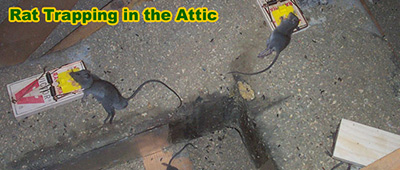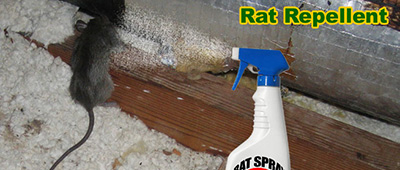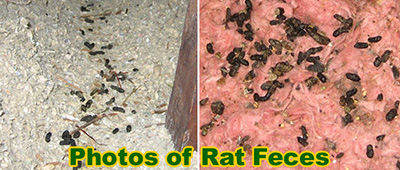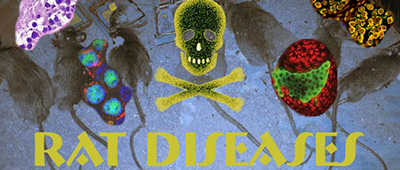If you are bitten by a rat, you shouldn't panic. The chances of you getting seriously sick as a result of this are slim. In fact, there's a good chance that you'll be just fine, with the exception of being a little sore for a few days.
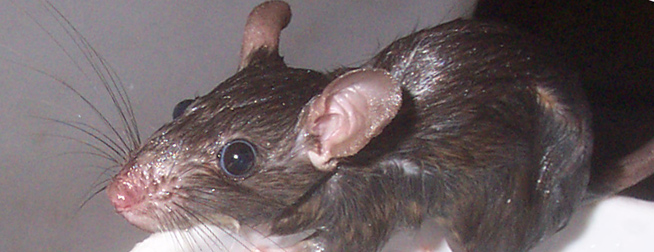
Normal body reactions to a rat bite will include swelling, soreness, maybe even bleeding for a while if the wound is quite bad. These symptoms will go away by themselves, but if you start to notice that your wound is weeping, turns a little off-color, or starts to fill with pus, you should seek out medical attention. There is a good chance your wound is infected.
If you are worried about the transmission of rabies from the rat, please don't be. Although rats *can* carry the rabies virus, here have been ZERO reported cases of a human contracting rabies from a rat bite.
Rats do have very sharp and quite long teeth, and these can inflict a nasty wound. Rats that are fit and healthy would generally avoid humans, rather than attacking them, and rat bites are actually relatively rare. If you were to get too close to a rat in a trap, it would more than likely go for your fingers. If you were to come across a rat in the same room, however, it would much prefer to run away. This is very much the case for most wild animals.
There are some diseases that are commonly associated with rats, and these are all concerns to think about when you have been bitten by one. A tetanus infection can occur if your vaccinations are not up to date, and as well as rat fever (which is rare), Hantavirus and leptospirosis are also spread via rats. This is why we would always advise that you get yourself checked over if you have been bitten by anything - rats included.
If you do find yourself in the very rare situation where you have become bitten from a rat and contracted "streptobacillary rat bite fever", symptoms are often commonly mistaken for that of the flu, or a common cold. Generally occurring around three to ten days after the bite / source of infection, initial symptoms will include fever and chills, headaches, muscle pains and aches, and also vomiting as well as joint pain.
Leptospirosis is another nasty disease, spread in the urine and feces from the rats. This can cause a number of body problems, but can lead to liver and kidney problems, and even long-term damage. The urine and feces of this animal can also cause cross-contamination with salmonella, and we all know what it's like when that particular condition invades your house. It's definitely not pleasant!
That's before you even get into the idea of ticks and fleas which, as well know, wreak havoc, with your pets, on your skin, and even in your home.
Coming into contact with these rodents, in any capacity, is going to come with some threats. This is why we would always recommend calling in the professionals to ensure the job is done properly.
Go back to the Rats in the Attic home page. You can also read about Do rats attack human necks? or Do rats bite humans in their sleep?
Read other articles:
Rat diseases symptoms in humans
What diseases do rats carry?

Maybe you were cleaning out your garage and accidentally startled a rat. Maybe you were feeding your pet rat and it accidentally bit you. Regardless of how it happened, a rat bit you. While it may seem insignificant, this is a big deal. Rats carry all kinds of diseases that can be potentially deadly to humans. Continue reading to learn about some of the diseases they cause, and what to do if a rat bites you.
Diseases
Rats are some of the filthiest creatures in the world. They frequently carry many diseases that can be fatal. One of the scariest diseases rats carry and can spread to humans through bites is called rat-bite fever. Rat-bite fever has the potential to cause recurring fevers for years. Rat-bite fever is a bacterial infection that, if left untreated, can potentially cause pneumonia, meningitis, and even heart inflammation. Luckily, since the disease is bacterial, it can usually be treated by penicillin and most patients recover completely.
Hantavirus is a nasty viral infection that cannot readily be treated by antibiotics because it is a viral infection. Hantavirus has a mortality rate of roughly 35%, making it imperative that you avoid getting bit in the first place. This virus usually causes chest pains, shortness of breath that can get more severe, kidney failure, and even hemorrhagic fever. It is important to get tested quickly, as being in an intensive care unit early increases chances for survival.
Leptospirosis is a bacterial infection that can severely harm humans. There is a wide range of symptoms such as high fever, chills, muscle aches, jaundice, abdominal pain, and red eyes. If left untreated, leptospirosis can cause meningitis, liver failure, kidney damage, and death. Luckily, leptospirosis can be treated with antibiotics, and most patients make a complete recovery.
There are so many other diseases and viruses that rats carry, but in addition to all of these, infections are just as common and can be just as serious. Putting aside all of the more serious and threatening diseases that rat bites can cause, there is still the issue of the wound becoming infected with bacteria from the rat’s mouth and saliva. This can eventually lead to more serious conditions. That is why it is imperative to quickly clean and disinfect the wound as soon as possible.
With all of these diseases possible, it makes the rat bite seem even scarier. While it is important to take a rat bite seriously, don’t be too alarmed. Most of these cases are rare, and that is why it is important to go to your doctor either way.
Seek Medical Attention
After reading about all of those diseases, you probably won’t need much convincing to go see a doctor. Your medical professional will probably want to run some tests and will surely disinfect and clean your wound. This will help prevent any anxiety and worry on your part, as the medical professional will let you know if you have a disease and what your treatment options are.


